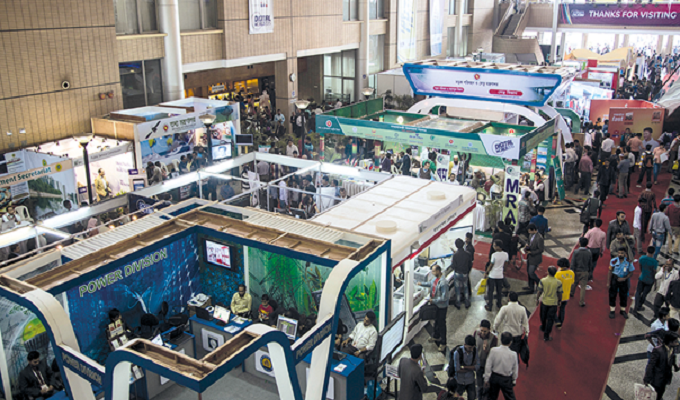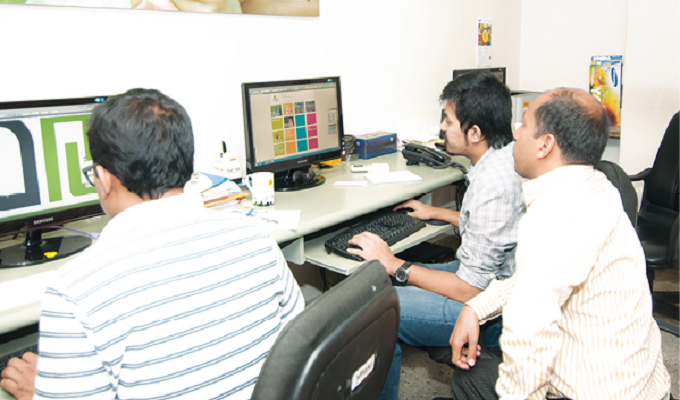

Using services trade to drive economic transformation: Bangladesh’s IT sector
While ‘trade-led growth’ tends to evoke images of manufactured exports, the fact is that services trade, too, offers avenues for developing countries to shift people and resources into higher-productivity activities.
Though some developing countries – emblematically India – have successfully linked services sectors, notably information technology (IT), to the global division of labour, many other developing and least developed countries have run into obstacles along the way. Bangladesh’s IT and ITenabled services (ITES) industry is a case in point: its doubledigit growth rates in the past decade have been fuelled mainly by domestic demand. Despite globally competitive prices, strong government support and high-quality ‘boutique-style’ solutions, Bangladeshi tech companies have made only modest inroads into global markets.
Bangladesh’s IT and ITES companies have been held back in export markets by weak country branding, insufficient marketing skills, skills shortages, and challenges accessing potential clients. Greater exports for the sector would support the growth of indigenous companies and attract the attention of larger international technology companies, creating virtuous circles of trade, investment and job creation.
The responseTo generate new export revenues for Bangladesh’s IT and ITES industry sector, ITC is working with the Dhaka Chamber of Commerce and Industry and the Bangladesh Association of Software and Information Services (BASIS), the main industry association, to enhance their ability to promote entrepreneurship and help Bangladeshi businesses, especially SMEs, connect to foreign markets. Since ITC started working with BASIS in 2010, its membership has doubled, to over 1000 companies. Its portfolio of services for members has expanded, too. For example, through partnerships with multiple financial institutions, BASIS now facilitates access to loans, foreign currency banking, and online payment systems.
The project also aims to directly connect companies to international clients through business-to-business (B2B) events targeting selected markets such as the United Kingdom and the Netherlands. In addition, it offers workshops and training to strengthen small and medium-sized enterprise (SME) export marketing capacities.
The resultsIn 2015, six B2B events facilitated 237 bilateral meetings between 40 small and mid-sized Bangladeshi tech companies and potential clients. The meetings yielded some 27 deals, involving 16 of the Bangladeshi companies, worth a total of nearly US$1 million. Prior to these meetings, the SMEs were trained to take a structured approach in selecting target markets, based on the Export Marketing Plan of the Dutch government’s Centre for the Promotion of Imports from developing countries (CBI). They also received individual coaching on developing customized export marketing strategies.
GraphicPeople, a Dhaka-based firm with 360 employees providing digital and print production services, signed contracts in 2015 with three British advertising agencies for services such as website and banner creation. The deals trace their origins to a B2B event in London in November 2014.
‘The leads took time to mature, but it was eventually very successful,’ said Imtiaz Ilahi, GraphicPeople’s managing director. ‘Our revenue has gone up between 5% and 7%, thanks to these contracts.’
Being matched with people in decision-making roles who understood the financial benefits of offshoring was particularly important for finalizing the deals, Ilahi explained. He suggested that the United Kingdom, given the English language and its familiarity working with international companies, marked a logical first step for GraphicPeople into the broader European Union market.
Another deal saw DataSoft Systems, an 18-year old Bangladeshi software product and services company, develop an application to accompany a driver’s manual for Maruboshi Europe, a firm specializing in technical writing for the auto industry. The sophisticated application, which relies on augmented-reality technology, went well beyond what the Amsterdam-based subsidiary of a Japanese company initially expected to procure. ‘I went to Bangladesh [with ITC] intending to outsource graphic work, and I came back with a notebook stuffed with ideas, full of inspiration and new energy [as well as] plans to develop a complete new product for my company,’ said Vicente Ariza Alcalde, a manager in Maruboshi’s desktop publishing and data processing department. ‘Today this plan is a reality.’
A November ‘boot camp’ in Dhaka equipped 31 startups and a group of female entrepreneurs to pursue venture capital more effectively. One of those companies, Humac Lab, went on to win a pitch competition event in Dhaka with an app, called Madviser, to compare cell phone offers by analysing phone usage patterns. The event was backed by ITC and Seedstars, a worldwide initiative on technological capacity and gender inequality in entrepreneurship that supports seed-stage tech startups in 55 countries.
In its work with BASIS, ITC applied its proven AIM for Results methodology to help TISIs understand and improve their performance. Through this process, BASIS developed a three-year internal strategy and a new framework for measuring results, enabling it to deliver improved services to its fast-growing membership base.
The futureFour B2B events are planned in 2016 – in East Africa, Sweden, Switzerland and the United Kingdom. The group of beneficiary companies will continue to expand; ITC plans to offer individualized coaching on sales and marketing in developed economies.
Humac Lab, which won the Dhaka pitch competition event, is set to participate in a global Seedstars Summit in Lausanne, Switzerland, in 2016, opening up access to venture capital firms, potential clients, and mentors.



